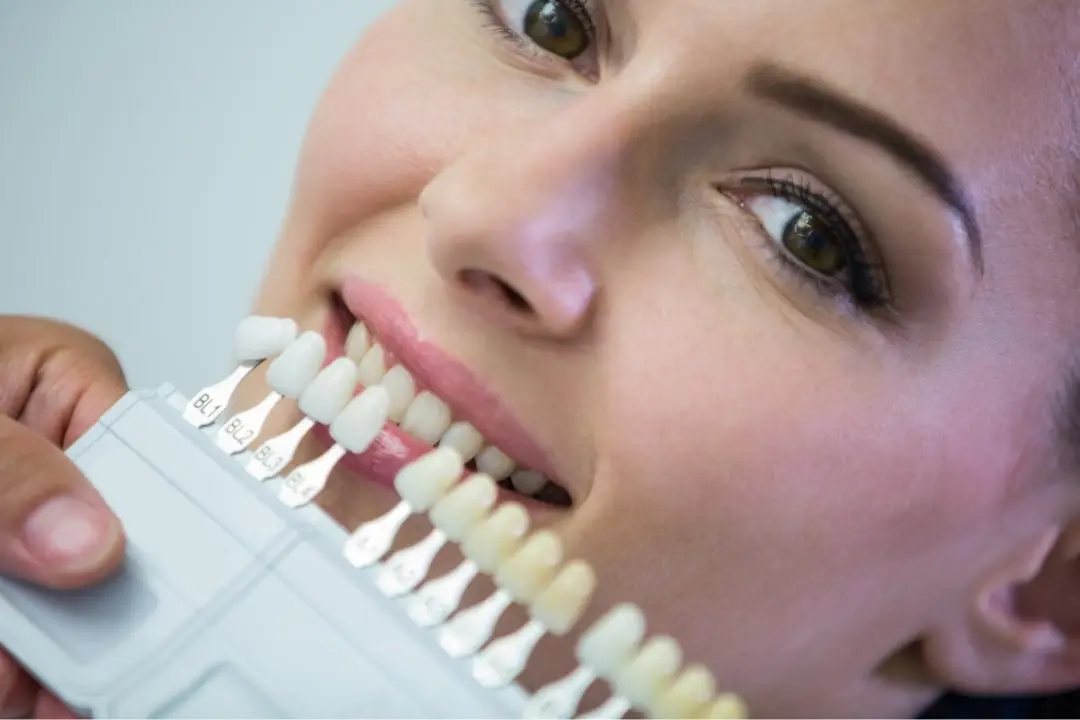About the lifespan of veneers
Dental veneers are thin shells made of ceramic that are shaped and colored to perfect your smile and solve problems such as cracks, breaks, discoloration and gaps. They are very popular not only because they are functional, but also because they are a long-term treatment when performed by experienced dentists.

Teeth veneers provide a bright and aesthetic appearance by providing a perfect harmony with your natural teeth. The veneers applied to the front surface of your teeth are usually fixed with a dental cement. Tooth enamel is removed from the area where they will be applied so that they look the same aesthetically and functionally as your other natural teeth. The treatment process can usually be completed in a few sessions.
How long will your dental veneers last?
The longevity of dental veneers can vary depending on factors such as the type of material used, the person's lifestyle and oral and dental health. In general, porcelain veneers can last up to 15 years, while composite veneers can last an average of 8 to 10 years. If regular oral and dental care is provided, the service life of the veneers can be extended.
Of course, those who prefer porcelain veneers should be ready to show a certain level of commitment. For example, good oral hygiene and regular check-ups with your dentist. But in general, porcelain veneers should be painless and have the power to provide new life, increased self-confidence and a smile you can be proud of.
What can be done to extend the life of dental veneers?
Brush your teeth regularly with a soft toothbrush
Gently cleaning your teeth will help keep both your teeth and veneers healthy. Brush your teeth at least twice a day using a soft-bristled brush and don't forget to floss. Avoid brushing too hard; this will prevent damage to your teeth and veneers.
Stay away from hard foods
Biting and chewing hard foods can break or crack your veneers.
Don't use your teeth as tools
Your teeth are not tools, so don't open bottle caps or food packages, be gentle with your veneers.
Stay away from foods and drinks that stain
Beverages such as coffee, tea and wine can cause your veneers to yellow over time. Limit your consumption of these types of foods and brush your teeth afterwards, so you can preserve the natural shine of your teeth for a long time.
Quit tobacco products
Using tobacco products and smoking can damage your veneers and negatively affect your gums, leading to health problems. Quitting this habit will not only extend the life of your veneers, but it will also benefit your overall oral health.
Don't grind your teeth
Bruxism (tooth grinding) can damage your veneers. Your dentist can help you manage this by wearing a night guard. This will increase the durability of your veneers.
Don't neglect your dentist visits
Having your dental health checked regularly will help you learn about the condition of your veneers. Your dentist can help you avoid major treatment costs in the long run by catching potential problems early.
Be gentle with your teeth
Avoid using your teeth as tools. Opening packages or opening bottle caps can damage your teeth. These types of behaviors can damage both your veneers and your natural teeth.
Are dental veneers permanent?
Dental veneers are usually permanent, meaning they are irreversible. This is because your natural teeth must be shaved down during the procedure so that the veneers can be placed on your teeth. Over time, your veneers will need to be replaced when the need for replacement arises.
When do veneers need to be replaced?
Veneers usually last between 10-15 years, but over time, they need to be replaced aesthetically and functionally. Veneers need to be replaced if there are discolouration and visible cracks in the teeth or if there are gum problems.
Can veneers fall off?
Yes, very rarely veneers can loosen and fall off over time. This is usually the result of excessive force, tooth decay or incorrect treatment.
Is it painful to get veneers?
Veneers treatment is painless because local anaesthesia is applied. However, there may be slight sensitivity or discomfort after the procedure, which will pass within a few days. Your dentist will take all necessary precautions to ensure that you have a comfortable process.
